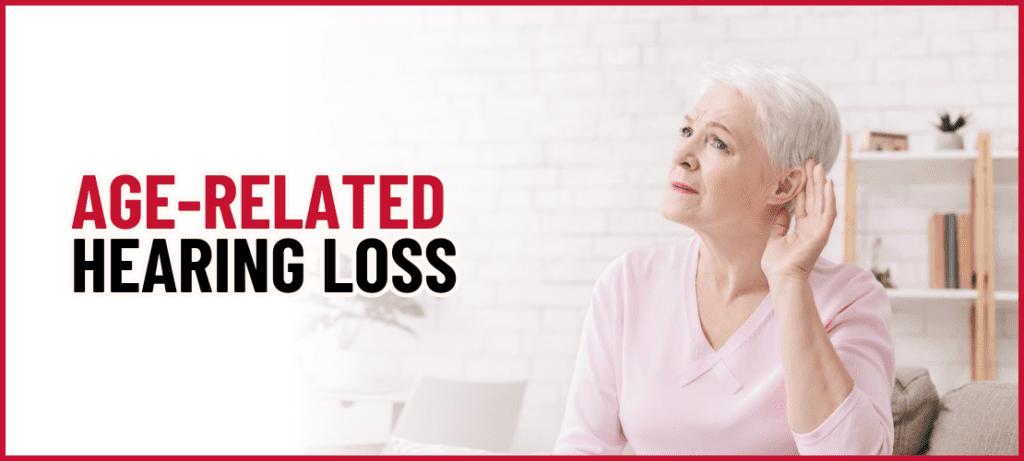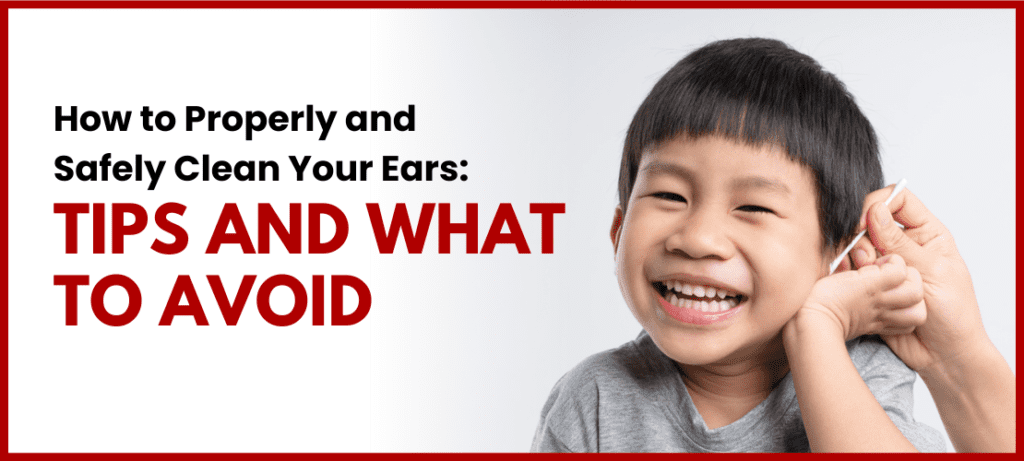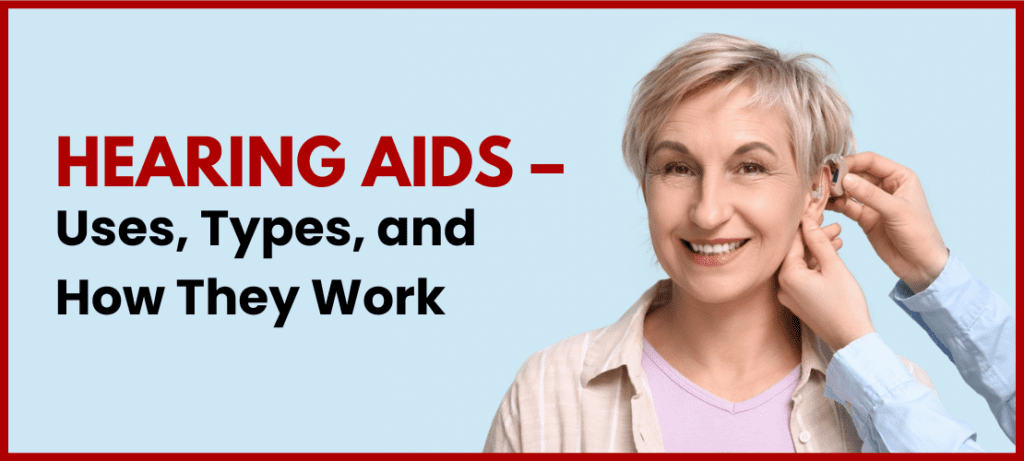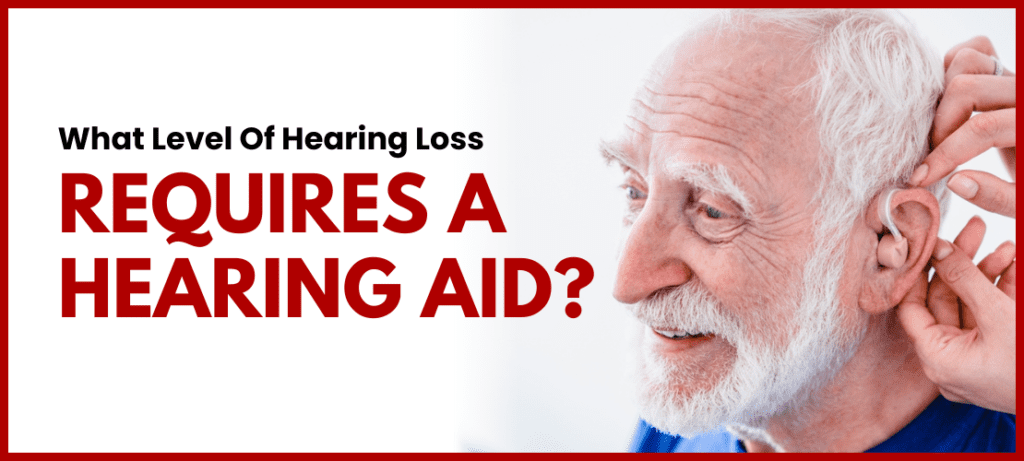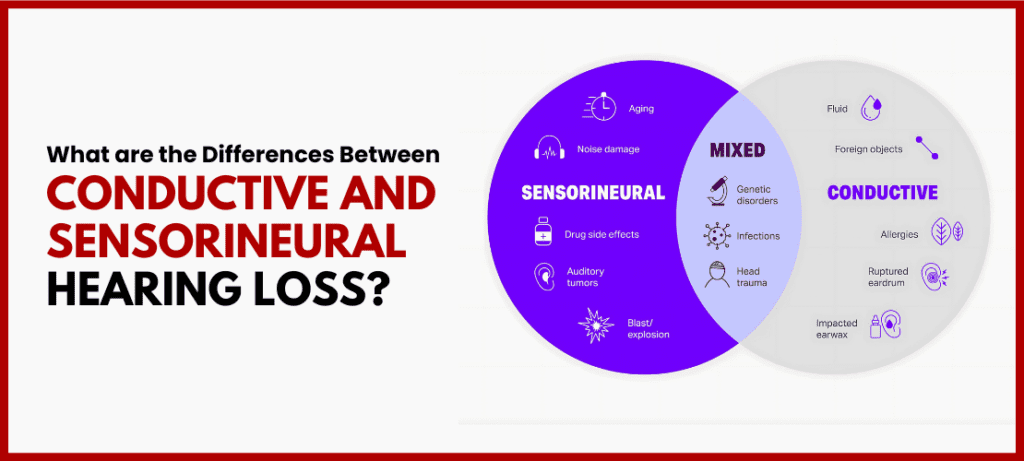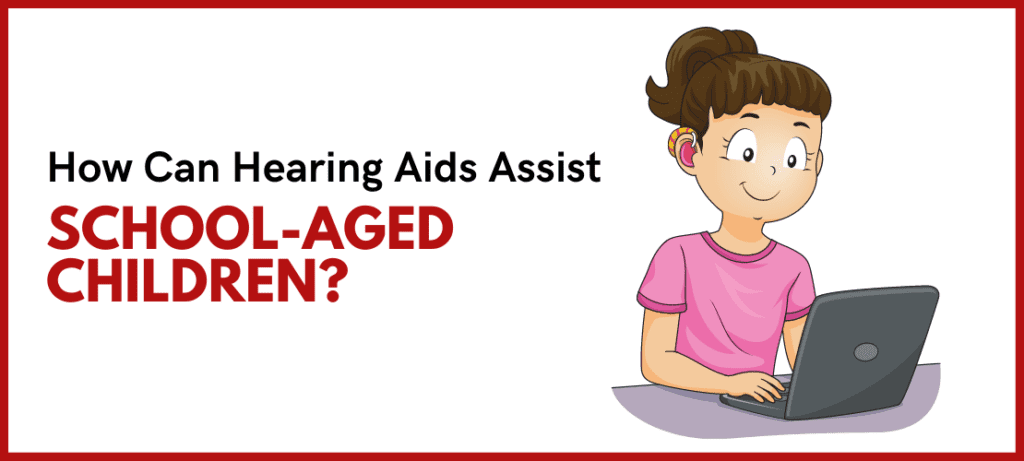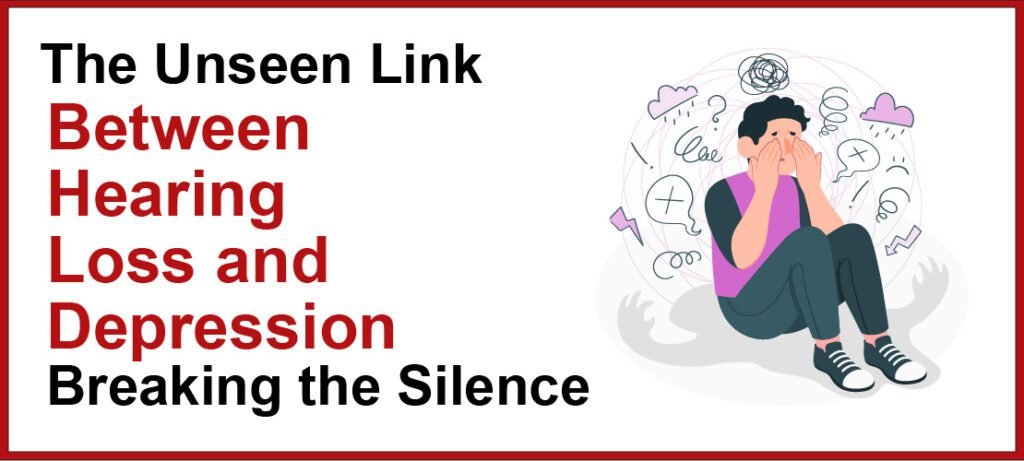Understanding Communication Issues in Elderly Patients: The Distinction Between Hearing and Listening
Table of Contents

The Perception Gap: Reasons Elderly Patients Could Say “I Am Hearing Well”
Many senior patients visiting the clinic say, “I am hearing well; it’s only sometimes that I miss things.” Despite its apparent simplicity, this statement highlights a significant difference between hearing and listening, which often leads to misunderstandings for both the patient and their family.
An elderly individual who says they are hearing well can believe they have no significant issues. The true challenge, then, is not only sound detection but also understanding the complete message. This difference between listening and hearing can be frustrating for both the affected individual and others trying to engage with them.
What Causes the Difference Between Hearing and Listening?
Knowing how listening is different from hearing depends on the patient’s type of hearing loss. Many seniors experience hearing loss that mostly affects higher frequencies rather than lower ones. The following explains why this is significant:
- Low Frequency Sounds- H3: Since these sounds are usually less impacted by hearing loss, patients might still hear background noises, deep voices, or other low-pitched sounds rather well.
- High Frequency Sounds- H3: These are the sounds that hearing loss usually affects more severely. When missed, speech sounds like “s”, “sh”, “f”, and “t” are higher-pitched and might cause confusion and difficulty in comprehending speech effectively.
The result is that the person may understand the meaning of sounds but not fully appreciate it. For instance, they might miss the subtleties that would make the message ambiguous or parts of the words even if they could hear someone speaking. Many persons with high-frequency hearing loss find this difficult, and it is often the reason they are ignorant of the extent of their listening and hearing in communication issues.
Hearing vs. Listening: What Difference Is There?
Though they are quite separate ideas, hearing and listening are sometimes mixed together, thus it is vital to distinguish between them.
- Hearing is a physical activity- H3: Hearing is the ability to use the ear to hear sounds. Usually brought on by damage to the ear’s structures, particularly the inner ear, hearing loss changes how well sounds are received or recognised.
- Listening is a psychological tool- H3: Listening is not only hearing the noises; it’s also knowing and comprehending them. The brain’s job is to turn the noises the ear picks up into pertinent information.
Hearing loss, especially with high frequencies, can lead the ear to send unclear or partial messages to the brain. As a result, the brain struggles to fully understand these impulses, which leads to problems with listening. Though the ear can pick up sounds, it cannot always send clear signals allowing the brain to properly analyse those sounds — a crucial aspect when understanding listening vs hearing in communication.
The Effect on Communication
When elderly patients tell us they are “hearing well,” they may not realise they are not fully processing the sounds they hear. Though the person says they can hear the words being stated, the listener could notice that the person is not reacting to the complete meaning of a discussion.
Often one of the most challenging aspects of communicating with someone with age-related hearing loss is this disparity in perception: the listener perceives knowledge gaps while the person with hearing loss does not. Helping persons with hearing loss requires us to keep this little but important difference between listening and hearing in mind.
Hearing aids: their advantages and disadvantages
We Understand Your Problems
Should your loved one be battling with hearing, you have most likely considered employing hearing aids. You could wonder, “Will hearing aids completely fix the problem?” or “Even with hearing aids, why do some people still struggle to grasp?” These are common and important questions. We want to honestly and openly lead you.
How Do Hearing Aids Help?
Hearing aids can provide significant comfort to those with hearing difficulties. Here’s how they assist:
- Hearing aids amplify the important spoken sounds—especially higher-pitched ones usually lost with age. This enables your loved one to understand discussions clearly and highlights the benefits of active listening supported by better hearing.
- By making speech clearer, hearing aids enable your loved one to stay involved in social events and family gatherings, therefore reducing feelings of loneliness.
- Daily Life Simplified: Daily chores like phone calls, dinner talk, or watching TV become more enjoyable and less stressful.
Think of hearing aids as akin to glasses; they serve to clarify what is being heard, thereby enabling conversation and living.
Reasons Hearing Aids Are Insufficient
Although useful, hearing aids don’t precisely solve everything; therefore, it’s crucial to understand this:
- Hearing aids cannot completely heal damaged auditory circuits much as glasses do not cure eyesight problems. Though the ears could still miss little details, they significantly improve hearing and highlight how listening vs hearing still remains an important distinction.
- Even with hearing aids, busy restaurants, crowded events, or family get-togethers can sometimes be challenging. Background noise might still drown out voices your loved one wants to hear.
Effects of Unattended Hearing Loss and Other Medical Conditions
Particularly if your loved one additionally suffers from diabetes or high blood pressure impacting blood flow and nerves, hearing loss left untreated for a long time may cause the brain to need extra time to relearn how to grasp amplified speech clearly. In these cases, patience and consistent usage of hearing aids become even more crucial.
Adjusting Takes Time: The brain has to get used to hearing sounds clearly once more. Sometimes it takes many weeks or even months for full adjustment and benefit from hearing aids.
Hearing aids call for regular upkeep, battery changes or charging, and cleaning. Regular upkeep ensures their lifetime and efficacy.
Auditory Training: An Extra Tool
In situations when hearing aids alone are insufficient, auditory training can be really beneficial. Think of auditory training as physical treatment for the brain and hearing. Here’s how it works:
- Consistent listening exercises strengthen components of active listening that enable your loved one’s brain to better grasp speech, especially in loud environments.
- Training enables your loved one to develop tools to manage challenging listening conditions comfortably and confidently.
- Especially if hearing loss has been long-term or worsened by medical issues, auditory training can assist the brain in adapting to hearing aids more rapidly.
Your Support Matters; Changes Take Time
Choose the suitable device by working directly with your hearing professional.
Should it be necessary, encourage your loved one to use their hearing aids every day and often participate in auditory training.
Speak clearly to your loved one and turn to them to reduce background noise.
Staying Together Positive
While you are not alone, we know that communication challenges and hearing loss can be upsetting. Combining hearing aids, auditory training, and supportive communication strategies can enable us to significantly boost your loved one’s ability to comprehend and engage.
We can facilitate everyone’s more connected, clear life and better communication, showcasing the benefits of active listening in everyday interactions.
Methods of Improving Communication
If one intends to bridge this gap, effective listening is just as crucial as hearing. Here are a few suggestions that might help:
- Promote calm, clear communication and consider utilising gestures or facial expressions to aid convey meaning. Lip-reading can also enable one to understand.
- Lower Background Noise: Noisy environments make hearing much more difficult even for those who can hear. Reducing background noise helps a lot.
- Check Understanding: Occasionally, it’s beneficial to ask if the message has been understood or if any significant aspects have been overlooked. This ensures that both sides have the same point of view.
Consider utilising hearing aids. Devices like hearing aids can especially raise the volume of the noises in the higher frequency range that are more challenging to hear. These gadgets can improve both hearing and listening with appropriate modification, providing clearer, fuller sound signals that highlight listening and hearing in communication.
Realising that listening vs hearing is more than just sound detection allows one to be patient and kind. Talk with patience and empathy. Sometimes, ensuring the message is absolutely clear calls for extra time.
Last Ideas: Increased Knowledge of Hearing and Listening
All things considered, hearing and listening represent two different yet deeply connected processes. Hearing is the physical ability to detect sound; listening is the brain’s ability to interpret those sounds — answering the essential query of what is active listening in relationships.
People with high-frequency hearing loss might hear sounds but struggle to understand them, which would frustrate both parties in the discussion.
Recognising what is the difference between hearing and listening, and using the right tools and techniques like hearing aids and auditory training, will help us create a space where improved communication may happen.
Whether through hearing aids or intentional communication strategies, there are many ways to foster comprehension and ensure more clear, meaningful conversations.
Ultimately, we all want to feel heard and understood — something we can work towards together.
Frequently Asked Questions
Request Consultation
Related Post
-
 2025 Signia Hearing Aid Price
2025 Signia Hearing Aid Price -
 Understanding Communication Issues in Elderly Patients: The Distinction Between Hearing and Listening
Understanding Communication Issues in Elderly Patients: The Distinction Between Hearing and Listening -
 Hearing Loss: Types, Symptoms, Causes & Treatment
Hearing Loss: Types, Symptoms, Causes & Treatment -
 Age-Related Hearing Loss (Presbycusis)
Age-Related Hearing Loss (Presbycusis) -
 How to Safely and Properly Clean Your Ears- Methods & What to Avoid
How to Safely and Properly Clean Your Ears- Methods & What to Avoid -
 Hearing Aids- Benefits, Different Styles/Types and How They Work
Hearing Aids- Benefits, Different Styles/Types and How They Work -
 What Level Of Hearing Loss Requires A Hearing Aid?
What Level Of Hearing Loss Requires A Hearing Aid? -
 Differences Between Conductive and Sensorineural Hearing Loss
Differences Between Conductive and Sensorineural Hearing Loss -
 When is the correct time to upgrade Hearing Aids?
When is the correct time to upgrade Hearing Aids? -
 How Can Hearing Aids Assist School Aged Children?
How Can Hearing Aids Assist School Aged Children? -
 The Impact of Hearing Loss on Cognition
The Impact of Hearing Loss on Cognition -
 Hearing Resides in Your Brain, Not Just Your Ears
Hearing Resides in Your Brain, Not Just Your Ears -
 Exploring Link Between Hearing Loss and Depression_ Breaking the Silence
Exploring Link Between Hearing Loss and Depression_ Breaking the Silence -
 New Hearing Aids? Here’s How To Make The Most Of The Device
New Hearing Aids? Here’s How To Make The Most Of The Device -
 The Unseen Link Between Diabetes and Hearing Loss
The Unseen Link Between Diabetes and Hearing Loss




